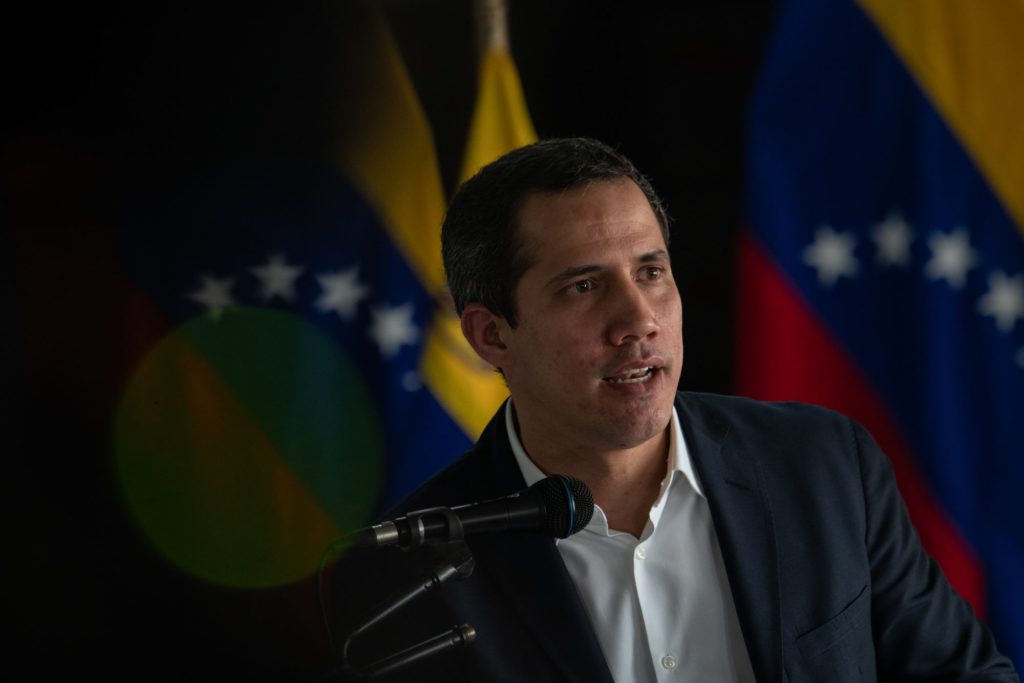Venezuela’s opposition put an end to Juan Guaidó’s interim government Friday, voting against renewing his US-backed strategy that failed to oust President Nicolás Maduro over the course of almost four years.
(Bloomberg) — Venezuela’s opposition put an end to Juan Guaidó’s interim government Friday, voting against renewing his US-backed strategy that failed to oust President Nicolás Maduro over the course of almost four years.
A proposal to eliminate the parallel government passed a second and final round of voting in the opposition-led National Assembly.
Starting Jan. 5, the National Assembly is expected to temporarily assume some of his responsibilities, mainly to protect Venezuelan assets abroad that were under Guaidó’s care, a task that’s not entirely clear they’ll be able to carry out.
Guaidó, defiant with a note of complaint, said that the opposition did what Maduro failed to achieve: remove him.
“If Maduro gives the order to arrest me, I will be here,” Guaidó said in the legislative session via webcast.
Lawmakers from three of the four main opposition parties voted to eliminate the figure of a caretaker president and his interim government by a margin of 72 votes in favor and 29 against, with 8 abstentions.
The dismantling of Guaidó’s shadow government marks the end of a fruitless effort to foster regime change that began in 2019, when he claimed the mantle as the country’s rightful leader, backed by the opposition parties and dozens of governments, following rigged elections.
His venture thrust him onto the global stage at such venues as the Davos World Economic Forum and as a guest of former President Donald Trump’s State of the Union address.
Yet after failing to recruit Venezuela’s powerful military and deliver on his promise to quickly oust Maduro, his popularity began to wane.
Regional Shift
These days Guaidó has lost the backing of all but a few foreign governments, with European countries dropping their recognition and newly elected leftist leaders in Latin America moving to re-establish ties with Maduro.
At home, his support among the opposition has dwindled to smaller groups and the Popular Will party, of which he was formerly a member.
As a result of Friday’s vote, the opposition Assembly will assume some of Guaidó’s responsibilites as its continues its term through 2023.
Those duties include keeping the ad-hoc boards of the central bank and state oil company PDVSA and establishing a five-member council to manage and protect assets abroad including Citgo Petroleum Corp.
and the nation’s gold stored at the Bank of England.
The assets will be safe, but if they do end up falling under Maduro’s control, the nations allowing it will have to answer, lawmaker Juan Miguel Matheus said.
“Our allies in the US and England have told us that they cannot guarantee that the defense of the assets will be maintained,” warned lawmaker Freddy Guevara, a member of Popular Will, one of the parties supporting Guaidó.
Neither the US Department of State, nor the UK’s Embassy in Caracas immediately responded to questions seeking comment.
The decision might “seriously affect the chances of successful primary elections to choose the opposition’s unitary presidential candidate,” lawmaker Biagio Pilieri warned during the discussion.
Primaries are taking place next year, ahead of presidential elections in 2024, in which Maduro is widely expected to run for a third term.
Yet it could present another opportunity for Guaidó, who could run as Popular Will’s candidate for the upcoming presidential elections.
(Adds Guaidó comments in third paragraph, details on ad-hoc boards in eighth paragraph.)
More stories like this are available on bloomberg.com
©2023 Bloomberg L.P.










